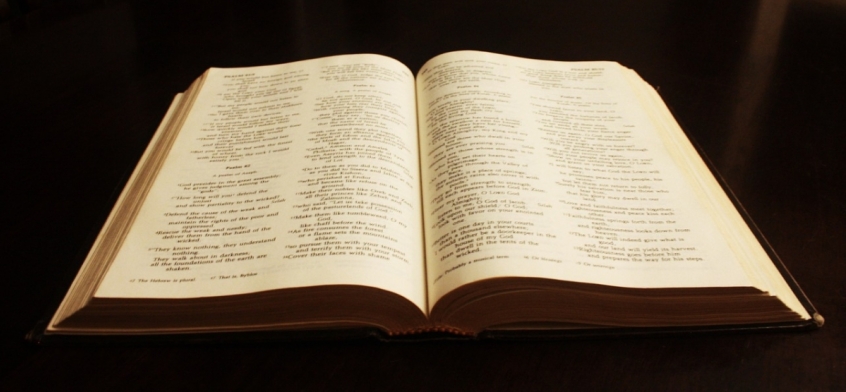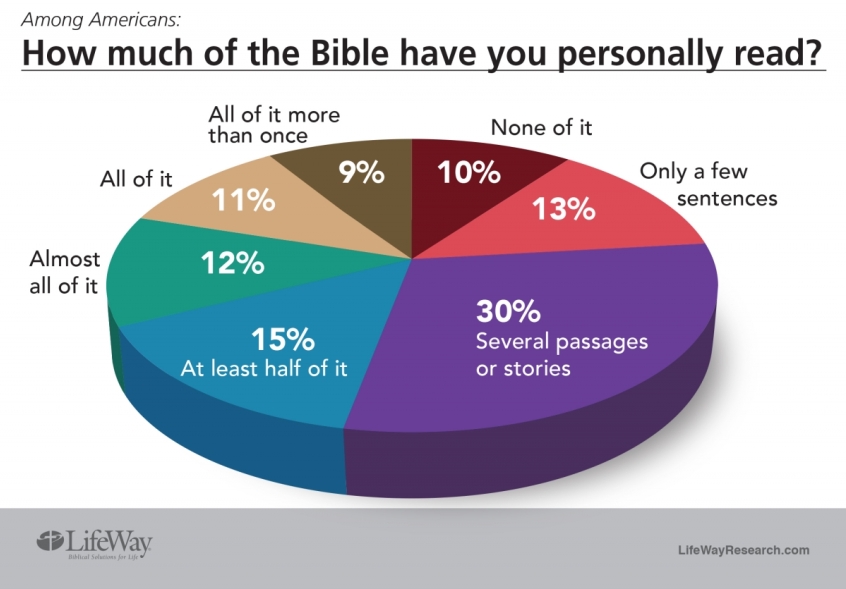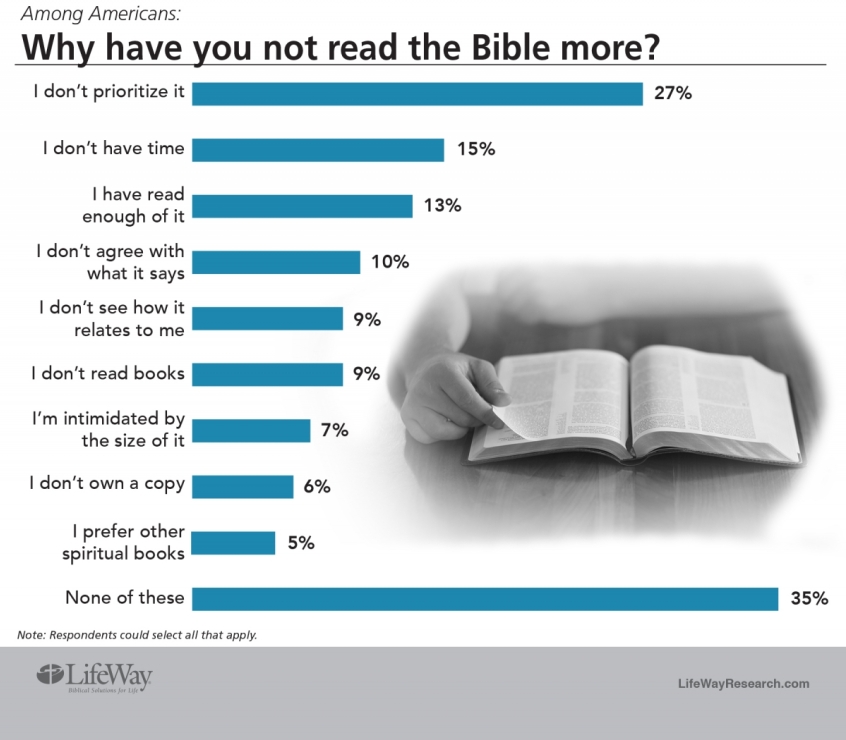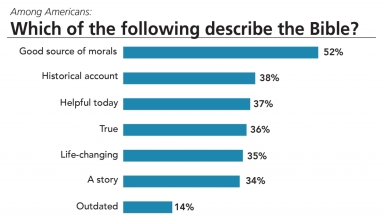New research suggests that while many Americans may have a positive view of the Bible, they hardly read it. The 'Good Book' is one many Christians struggle to find time or energy for. Why is that, and what can be done?

Over half of Americans have read little or none of the Bible, and less than half of churchgoers read it daily, according to a study by LifeWay Research.
'Most Americans don't know first-hand the overall story of the Bible – because they rarely pick it up,' said Scott McConnell, executive director of LifeWay Research.
'Even among worship attendees less than half read the Bible daily. The only time most Americans hear from the Bible is when someone else is reading it.'
In a survey of 1000 Americans done in September/October 2016, LifeWay found that one in five have read through the Bible at least once, while 53 per cent have read little of it, and one in 10 have never read it.
Regular church attendance does correlate with more regular Bible reading, though only 39 per cent of those who attend church at least once a month read Scripture daily. Forty-nine per cent of evangelicals read it daily.

In spite of these reading attitudes, many still hold a generally positive view of the Bible. Some said it was outdated (14 per cent), bigoted (eight per cent) or harmful (seven per cent). Most however (52 per cent) said it was a good source of morals; it as also described as true (36 per cent), life-changing (35 per cent) and helpful today (37 per cent).
There's a positive view of the Bible, and of course for Christians it's the inspired word of God, but across the board many don't make it a priority. There are at least three reasons why.
I'm too busy
We're busier than ever. Hard work and business are our culture's new status symbol. The digital revolution has brought us new resources and the new horizons: the power to work, produce and socialise anywhere, at any time. It may come from the best motives, but were we made for such frenzy?
In this lifestyle, under increasing demands and pressures, it's easy for the Bible to get left out. Fifteen per cent of those asked said they didn't have time to read the Bible. No wonder: our priorities are usually breakfast, caffeine and getting out of the door. Taking time for a serene study of Scripture is for many a luxury they can't afford.
I don't care
Related to busyness, 27 per cent said they didn't read the Bible more because they didn't prioritise it. In other words people don't care – or rather, they don't care enough. Even devout Christians may find reading the Bible falls behind other priorities, perhaps trying to dutifully serve God through one's deeds and relationships. Our best laid plans often fall by the wayside in our busy world, so there's little hope for the things we don't plan at all.
The Bible is an ancient, complex book and can often be a daunting read. For Christians it contains the words of life, but it takes work and determination, like most tasks of any real value.

I don't agree with it
Ten per cent of those asked said they don't read the Bible because they don't agree with what it says. It's an honest and simple enough confession. Since the survey includes non-Christians, it's also not surprising. The claims of the Bible aren't taken for granted like they once were. In a modern, secular society, it's world can seem alien, and for some, socially regressive.
Christians too may identify with this. The Bible is full of challenging, frustrating stories they don't make comfortable reading. The 'texts of terror' – accounts of murder, mass genocide and violence against women – are ones many struggle with. They often probe into the very character of God, and for that reason they're important to wrestle with. There are good responses and studies to be read on the Bible's trickiest sections, but not all problems can be simply solved.
Do we read the Bible because we're looking for something to affirm our lives, or something that we'll instantly be cheering along with? We might be looking in the wrong place. God's wisdom never promises to be easy, but it does invite us into a story that however challenging it may be – ultimately offers hope to a broken world. Modern advertising always promises to give you what you want. In contrast the Bible offers something deeper: what you need.
Curiously, 35 per cent of those asked said that none of the given reasons explained why they weren't reading the Bible more, but it's not clear what their alternative factors were. Whatever people's reasons, what can they do if they want to read the Bible more?
Go online

Surveys suggest nine in 10 Americans have a Bible in their home, while the average household has three. So access isn't an issue. Furthermore, the Bible has become increasingly available to read and study through the gift of the internet. Bible apps are increasingly well made, user friendly, and integrate smartly designed reading plans that give you set passages for the day.
Get liturgical
Many in more high church traditions will follow a set lectionary, which provides passages of Scripture for every day. Following these alongside your denomination's daily prayers might help the experience become less abstract and more contemplative.
Just do it
Since many said they struggle to have time, one answer is simple: make time. Set aside the time in your day where you'll commit to reading the Bible. That way, it's obvious to say, its place in your day is guaranteed.
Likewise, since many say they just don't make it a priority, the answer is of course to make it a priority. Perhaps ask yourself why you don't care more, and remind yourself why it really matters. Ask a friend for help: you or a group could do it together. McConell suggested that many see Bible-reading like exercise, they know they should do it, they just don't. The key, he suggested, is helping people experience how reading it can change their lives. The more it's read, he said, the more personal it becomes.
You can follow @JosephHartropp on Twitter













